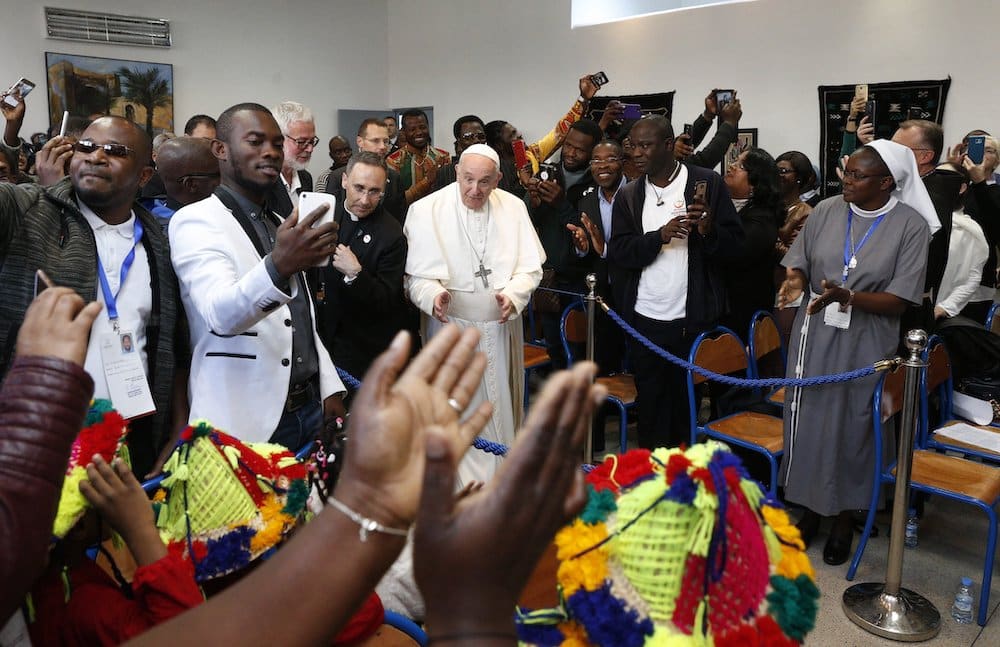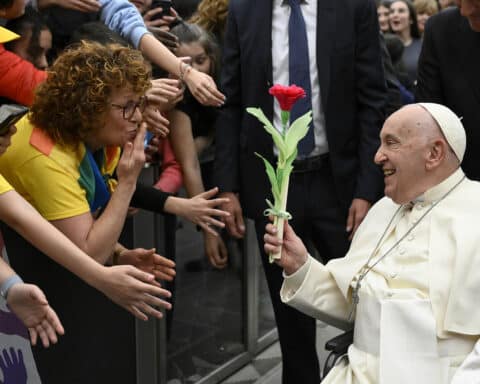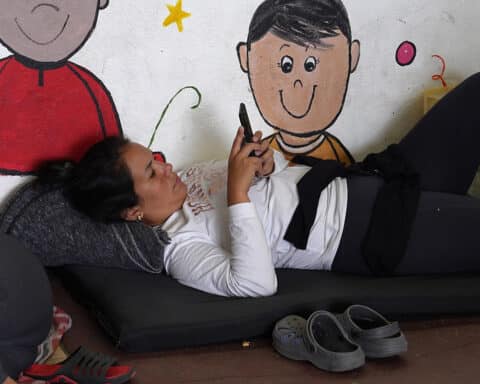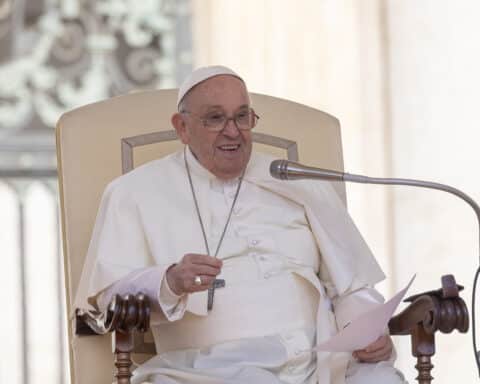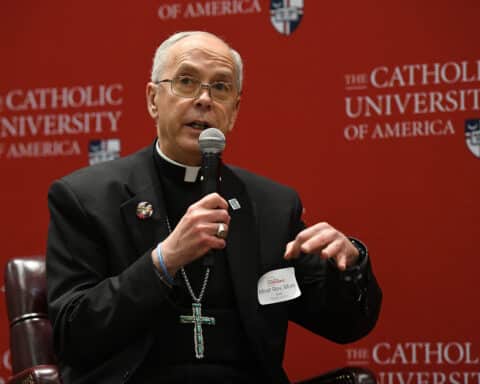VATICAN CITY (CNS) — Eliminating the root causes of forced migration means ensuring everyone has an equal share in the common good, their fundamental rights are respected and their lives can flourish through integral human development, Pope Francis said.
“Clearly, the principal responsibility falls to the countries of origin and their leaders, who are called to practice good politics — one that is transparent, honest, farsighted and at the service of all, especially those most vulnerable,” the pope wrote in his message for the celebration Sept. 24 of the World Day of Migrants and Refugees.
Pope Francis’ message, focused on the theme, “Free to choose whether to migrate or to stay,” was released at the Vatican May 11.
Everyone should be free — not forced — to leave their homeland, to remain in their new host nation and to return to their country of origin, the pope wrote.
Unfortunately, he wrote, “conflicts, natural disasters or more simply the impossibility of living a dignified and prosperous life in one’s native land is forcing millions of persons to leave” their homes.
“Persecutions, wars, atmospheric phenomena and dire poverty are among the most visible causes of forced migrations today,” he said. “Migrants flee because of poverty, fear or desperation.”
“Eliminating these causes and thus putting an end to forced migration calls for shared commitment on the part of all, in accordance with the responsibilities of each,” he wrote.
“This commitment begins with asking what we can do, but also what we need to stop doing,” he added. “We need to make every effort to halt the arms race, economic colonialism, the plundering of other people’s resources and the devastation of our common home.”
The ideal of the first Christian community was for the faithful to be together and have “all things in common” so that the benefits and proceeds of everyone’s goods could meet everyone’s needs, the pope wrote.
“To make migration a choice that is truly free,” he wrote, “efforts must be made to ensure to everyone an equal share in the common good, respect for his or her fundamental rights and access to an integral human development.”
This is primarily the responsibility of each nation and its leaders, but they must also be empowered to do so “without finding themselves robbed of their natural and human resources and without outside interference aimed at serving the interests of a few,” the pope said in his message.
A person’s decision to leave, he added, must be “well informed and carefully considered, in order to avoid great numbers of men, women and children falling victim to perilous illusions or unscrupulous traffickers.”
Individual countries and the international community, he wrote, need to work together to make sure people have and can enjoy “the right not to be forced to emigrate, in other words, the chance to live in peace and with dignity in one’s own country.”
Meanwhile, he wrote, “we are called to show maximum respect for the dignity of each migrant” by accompanying and managing migration flows the best possible ways, “constructing bridges and not walls, expanding channels for a safe and regular migration.”
“In whatever place we decide to build our future, in the country of our birth or elsewhere, the important thing is that there always be a community ready to welcome, protect, promote and integrate everyone, without distinctions and without excluding anyone,” he wrote.
At a Vatican news conference to present the message, Bishop Francesco Savino of Cassano all’Jonio, vice-president of the Italian bishops’ conference, told reporters that in his region of Calabria, “there are more Italians leaving every year than migrants coming.”
It would be nice, he said, if those thousands of young people who end up far from home, could have been free to stay. But going elsewhere also can enrich the person who migrates and the country that takes them in.
“Let us remember how much beauty and how many jobs Italians have brought to the world,” he said. “And how much Italy has received and is receiving from other people, today, as in its long history.”
People must be free to move, to travel and to migrate, he said, because the world belongs to everyone. “Every border is artificial and must remain permeable.”
But “freedom is not only mobility; it is also loyalty, being rooted, love for those places that nurtured our childhood and that tie us to the great past,” the bishop said.
Scalabrinian Father Fabio Baggio, undersecretary of the Dicastery for Promoting Integral Human Development, told reporters the dicastery website was posting materials as part of an awareness-raising campaign ahead of the world day.
The Pope’s message in Spanish can be found here.

